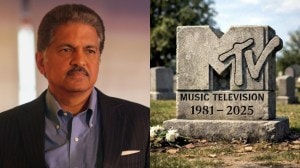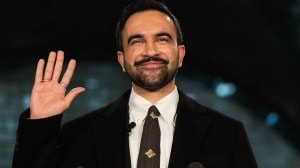Darkly, Through The Looking Glass
Imagine if a whole civilisation were described as thoroughly godless, morally lax, sexually promiscuous, and mired in a cult of easy consump...

Imagine if a whole civilisation were described as thoroughly godless, morally lax, sexually promiscuous, and mired in a cult of easy consumption and endless narcissism. Imagine further, that this civilisation grew politically and militarily powerful. But paradoxically, this power was seen only as further evidence of how depraved this civilisation had become. Instead of worshipping true gods, or worshipping them correctly, this civilisation idolised reason beyond measure, and unleashed human beings8217; promethean potential for mastery, in defiance of God8217;s will or higher spiritual values. Imagine further that this civilisation had no high ideals anyone was prepared to kill himself or herself for, it made human beings weak and undiscriminating, slave only to their desires.
Occidentalism argues that this is how in fact the enemies of the West have constantly represented it. This image sketched above is an enduring trope in the critique of the West. It transcends geographical boundaries and can unite otherwise disparate political projects. It appears in the guise of Slavophilism in Russia to Fascism in Japan. It animates Muslim critiques of the West as evidenced from leading lights of Islamic radicalism: Shariati, Taleqani and Qutb. Like its twin Orientalism, a constellation of Western characterisations of the non-western world, Occidentalism trades in stereotypes that are remarkably immune to complexity or empirical refutation. Like Orientalism, Occidentalism provides the basis of an ideology of hatred that, when harnessed to political power, can allow groups or nations to victimise innocent people in the West.
The power of Occidentalism and its appeal have little to do with the application of western power or imperialism itself. It often does not appear in places where the application of western power has caused serious devastation. It is somewhat sui generis, inspired by an existential resentment of modernity itself. And like most critiques of modernity, its origins lie within the West itself, in the romantic revolt against the Enlightenment, in the Fascistic struggle against liberalism.
Occidentalism describes the main tropes of anti-westernism and its enduring recurrence in agreeable, if somewhat breathless prose. It is a tour d8217; horizon rather than a work of serious scholarship or rigorous political analysis. Margalit is one of the most interesting contemporary moral philosophers. He has produced original analysis of the concept of a 8216;8216;decent society8217;8217; and of the ethics of memory. Buruma has written extensively on Europe and Japan and is a frequent contributor to that pillar of the liberal establishment, The New York Review of Books. Yet their combined effort is less than the sum of their parts. Occidentalism is marked neither by the fine philosophical analysis we associate with Margalit; nor by the profound historical ironies that distinguish the best of Buruma8217;s work.
But in the final analysis, this book is more an expression of bewilderment than real political insight. There are liberals who have written with much more insight about illiberal ideologies, most notably, Isaiah Berlin, who could give a vivid sense of what all the fuss was about. This book, by contrast, seems more like a reassertion of liberal platitudes in the wake of 9/11. And it misses the irony of the contemporary American response to Occidentalism: the charge of godlessness is being met with the most evangelical, religious and crusading politics that recent American history has seen.
- 01
- 02
- 03
- 04
- 05































